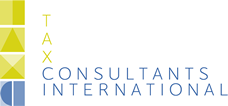On 16 September 2011, the tax plan 2012 (five proposals for tax measures) was presented to the Dutch Parliament.In the beginning of October 2011 two amendments of the tax plan 2012 were published. On 25 October 2011 the third amendment as well as explanatory notes have been published.
In the tax plan 2012 various measures have been proposed. We refer to our news item on the proposed changes as from 2012 which are relevant for corporations.
Below, we will elaborate on the proposed measures which are relevant for Cooperatives, which include
- the introduction of a general anti-abuse rule for substantial shareholders in a Dutch company and
- a specific anti-abuse rule introducing a conditional dividend withholding tax liability for cooperatives.
It is noted that the new legislation is still only a proposal to be approved off by Dutch Parliament. The proposed legislation may be changed in the course of the legislative process. We will keep you informed on relevant developments.
If in the meantime you have any questions with regard to the new legislation, or if you wish to be advised on the way the new rules may affect your Cooperative and possible measurers to avoid a negative impact of the new rules, please feel free to contact us via e-mail or call us at our offices in Amsterdam (+31 20 5709440) or Rotterdam (+31 10 2010466). Of course you are also welcome to visit our office.
General anti-abuse rule for substantial shareholders in a Dutch company
Currently, if a foreign entity owns 5% or more of the shares in a Dutch resident company (or has membership rights in a Dutch Cooperative and as such is entitled to 5% or more of the profits of the Cooperative) and these shares cannot be allocated to the equity of an active enterprise (i.e. the shares are “held as a passive investment”), the shareholder is regarded as a foreign taxpayer in The Netherlands. This tax liability includes capital gains on the shares, but also other income from the Dutch subsidiary such as dividends, interest and leasing income.
It is noted that also if the membership rights represent less than 5% of the profit rights a similar Dutch tax liability can occur if a group company holds 5% or more. In most cases a “nominee” 1% member can be pulled into the scope of the Dutch income tax levy.
Under tax treaties the right to tax a capital gain is usually allocated to the country of the shareholder and thus in many cases the treaty would prohibit The Netherlands to exercise its right on taxing the capital gain. In case there is no tax treaty a capital gain may (and will usually) become subject to Dutch corporate income tax.
Under the proposal, a non-Dutch resident entity with a substantial interest in a Dutch resident entity will not be subject to corporate income tax if
- the substantial interest can be allocated to the active enterprise of the foreign shareholder, or
- the substantial interest is not held with the main purposes to avoid Dutch personal income tax and/or Dutch dividend withholding tax.
If the substantial interest is held only in order to avoid Dutch dividend withholding tax (i.e. not to avoid Dutch personal income tax) and the interest cannot be allocated to the active enterprise of the foreign shareholder, the corporate income tax liability is limited to a 15% tax rate over dividend distributions. An accompanying measure is proposed in the Dividend Tax Act (see below).
It is noted that this change of law is in fact an improvement. Under the current rules, passive ownership resulted in a Dutch corporate income tax liability automatically. Under the new rules this will only be the case if there is an “abuse motive”.
Specific anti-abuse rule introducing a dividend withholding tax liability for Cooperatives
Under the current law a profit distribution by a Cooperative is not subject to dividend withholding tax.
Under the proposals, the foreign member of a Cooperative can become subject to a 15% dividend withholding tax if either
- it does not conduct and active enterprise (“active enterprise test”) and there is an “abuse structure” i.e. the structure is mainly aimed at the avoidance of Dutch dividend withholding tax or foreign tax, or
- it does conduct an active enterprise but the structure is mainly aimed at the avoidance of a Dutch dividend withholding tax claim.
With regard to the “active enterprise test” we note that this is the same test as the one referred to above for substantial foreign shareholders.
Only in case of an “abuse structure”, profit distributions to members in a Dutch Cooperative whose interest cannot be allocated to an active enterprise are subject to dividend withholding tax. For members in the Dutch Cooperative whose interest can be allocated to an active enterprise, the profit distributions will only be subject to dividend withholding tax to the extent necessary “to preserve” the Dutch dividend withholding tax claim on the profits of a Dutch company(ies) held by the Cooperative. This would typically be the case if the Cooperative acquired a Dutch company with existing retained earnings.
The introduction of a dividend withholding tax on substantial shareholders in a Cooperative is not a surprise. An unconditional 0% exit route through The Netherlands was simply too good to be true ! However, by introducing a set of rules which describe when the Cooperative becomes subject to Dutch dividend withholding tax, the Dutch legislator has basically created a safe harbor for the use of a Cooperative as a holding company in other situations which do not trigger the levy of Dutch dividend withholding tax. The 0% tax solution offered by the Cooperative has thus now been officially validated by the Dutch Government unless there is an “abuse structure”. The remaining question is thus when there is such an “abuse structure”. This will in any case cover the situation that the Cooperative holds the shares in a Dutch corporation and a Dutch dividend withholding tax claim would be lost if the Co-op would be exempt from Dutch dividend withholding tax. It will also cover the situation that the member of the Cooperative do not conduct an active enterprise and the Cooperative structure is used to avoid the levy of Dutch “or foreign tax”. The phrase “foreign tax” is not further explained, but according to discussions in Parliament, it is not intended the change the current policy. The new proposals are heavily debated in Parliament and we will have to wait and see what the final outcome will be. We will keep you informed on further developments.


.png)

